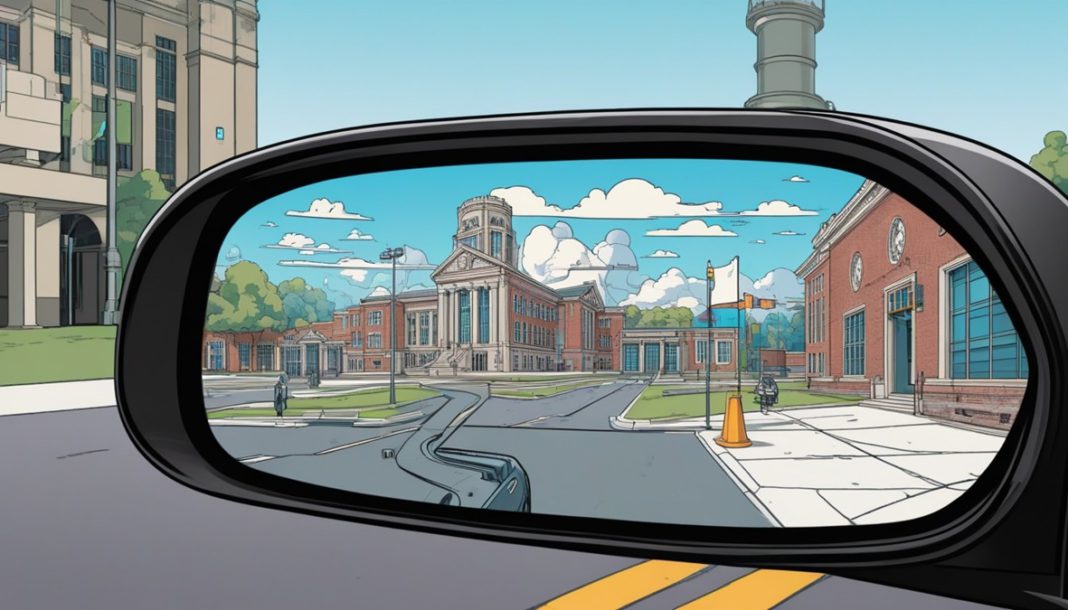In the relentless pursuit of academic excellence, universities find themselves at a crossroads, stuck in the comfortable cocoon of disseminating knowledge while the world hurtles towards the Industry 4.0 revolution. The traditional model of education, centered around curriculum-driven teaching, is increasingly at odds with the dynamic demands of the modern workforce.
As the fourth industrial revolution reshapes industries, universities remain anchored in an era where knowledge was power. While they continue to produce graduates armed with theoretical prowess, the chasm between academia and industry widens. The industry now hungers not for mere information regurgitators but for skilled professionals equipped with competencies tailored for the digital age.
In the epoch of Industry 4.0, where artificial intelligence, robotics, and data analytics reign supreme, universities must evolve from being knowledge dispensers to skill cultivators. The incessant drumbeat of change demands a departure from the rigid confines of traditional curricula. Instead, universities must embrace agility, fostering an environment that nurtures innovation, critical thinking, and adaptability.
The call is not to abandon the foundation of knowledge but to transcend it. Industry 4.0 requires a symbiosis between academia and the corporate realm, where universities become dynamic hubs incubating the skills essential for the future. It’s time for an education revolution, breaking free from the antiquated chains of rote learning and embarking on a journey that aligns education with the needs of Industry 4.0. Until then, universities risk becoming relics in the rearview mirror of progress, disconnected from the very revolution they should be spearheading.
As we navigate the ever-evolving landscape of technology, artificial intelligence, and a rapidly changing global economy, the job market is also undergoing a transformation. Traditional career paths are giving way to a host of unconventional jobs that were once considered futuristic fantasies. These are just some of the unconventional jobs of the future, driven by technological advancements and societal shifts. Are the Universities equipping the future workforce to deliver these roles?
Virtual Reality Architect
With the continued development of virtual reality (VR) and augmented reality (AR) technologies, a new breed of professionals is emerging – virtual reality architects. These individuals design immersive virtual spaces for various purposes, such as virtual meetings, educational experiences, and entertainment. Virtual reality architects combine skills in architecture, design, and programming to create interactive and realistic virtual environments.
Drone Traffic Controller
As drone technology becomes more integrated into various industries, the need for drone traffic controllers is likely to rise. These professionals would manage the flow of drone traffic in urban and rural areas, ensuring safe and efficient operation. Similar to air traffic controllers, drone traffic controllers would use advanced systems to monitor and coordinate drone movements, preventing collisions and optimizing routes.
AI Ethics Consultant
As artificial intelligence plays an increasingly prominent role in decision-making processes, the demand for AI ethics consultants is likely to grow. These professionals would be responsible for ensuring that AI systems operate ethically and without bias. They would assess and address the ethical implications of AI algorithms, making recommendations to developers and organizations to promote responsible AI use.
Quantum Computing Engineer
Quantum computing is on the horizon, promising unprecedented computational power. Quantum computing engineers will be at the forefront of this technological revolution, designing, building, and maintaining quantum computers. These professionals will need a deep understanding of quantum mechanics and information theory, ushering in a new era of computing capabilities.
Space Tourism Guide
As space tourism becomes a reality, a new industry of space tourism guides may emerge. These guides would accompany civilians on space journeys, providing information about the spacecraft, ensuring passenger safety, and offering insights into the wonders of space. Space tourism guides would need a combination of space science knowledge, customer service skills, and training for handling space travel-related challenges.
Urban Agriculturist
With increasing urbanization and a growing emphasis on sustainable living, urban agriculturists may become vital members of future communities. These individuals would design and manage urban farming systems, integrating agriculture into city landscapes. Urban agriculturists would contribute to local food production, promote environmental sustainability, and enhance the overall quality of urban life.
Personal Branding Consultant for AI Influencers
As AI-driven influencers become more prevalent on social media, a new profession may emerge: personal branding consultants for AI influencers. These consultants would help individuals and businesses develop and manage the online personas of their AI-generated influencers, ensuring they connect with their target audience and align with the desired brand image.
The job market of the future is set to be filled with unconventional opportunities that align with technological advancements and societal changes. Embracing these emerging roles will require a dynamic approach to education and skill development, as well as a willingness to adapt to the ever-shifting landscape of the modern workforce. As we look ahead, it’s clear that the jobs of the future will be as diverse and innovative as the technologies that drive them.
Also Read: Higher Education’s Transformation: Methodology and Outcomes Lead, Content and Tech Follow



